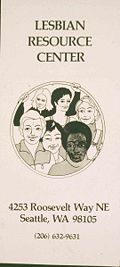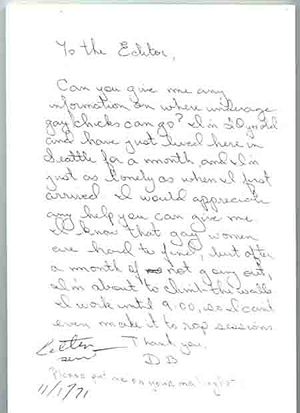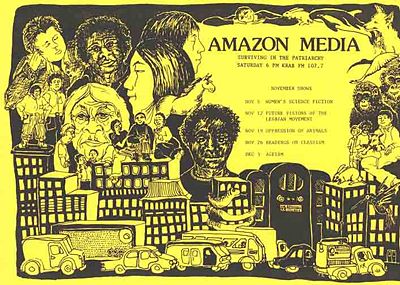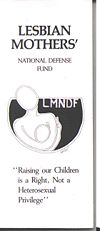1970s - Community Organizations
1970s - Community Organizations
Founded in response to the growing need for lesbian related services, Seattle's Lesbian Resource Center became the longest-running organization of its kind in the U.S. Established at the University YWCA in 1971 as the Gay Women's Resource Center, over the years the LRC provided rap groups, peer counseling, outreach programs to prisons, and a drop-in center.
Of the services the LRC provided, one of the most important was to relieve the sense of isolation felt by many lesbian and bi-sexual women (Lesbian Resource Center - Oral Histories). Given the anti-gay sentiment of many members of society it is not surprising that women writing to the Gay Women's Resource Center express gratitude for the opportunity to meet other women and to explore their identity.
For many lesbians, the women's liberation movement was empowering, a unifying force in opposition to the patriarchy. The Gay Women's Resource Center (later the Lesbian Resource Center) was founded partly in response to sexism in other gay organizations of the time. Feminism was central to the LRC's identity and policies from the start. Feminist politics could also be divisive, however. Some women adopted a separatist philosophy, attempting to dismantle the patriarchy by excluding men from their lives. In the mid '70s, Seattle's lesbian community split badly over the issue of separatism. Organizations and even friendships were affected by the split. Even so, lesbian organizations continued to flourish.
The Lesbian Mothers National Defense Fund, founded in 1974, was one of the first organizations in the country to offer legal advice, resources, and moral support to lesbians facing custody battles. Geraldine Cole speaks about LMNDF. Lesbian Mothers National Defense Fund - Oral History
By the late 70s and early 80s, gay communities in most urban areas of the Northwest had their own publications, like these two newsletters from Spokane and Olympia. In small towns and rural areas, however, many lesbians still relied on national newsletters like the Wishing Well for a sense of connection. This publication featured classified ads where readers identified themselves by age, zodiac sign, and location, and was a precursor of the "Women Seeking Women" sections of today's personals columns. Stories were often told about couples who met this way, often after a cross-country correspondence inspired by the listings.
Seattle, WA: Queen City Comes Out: Exploring Seattle's Lesbian and Gay History
All content of this page copyrighted by NWLGHMP. <comments />






